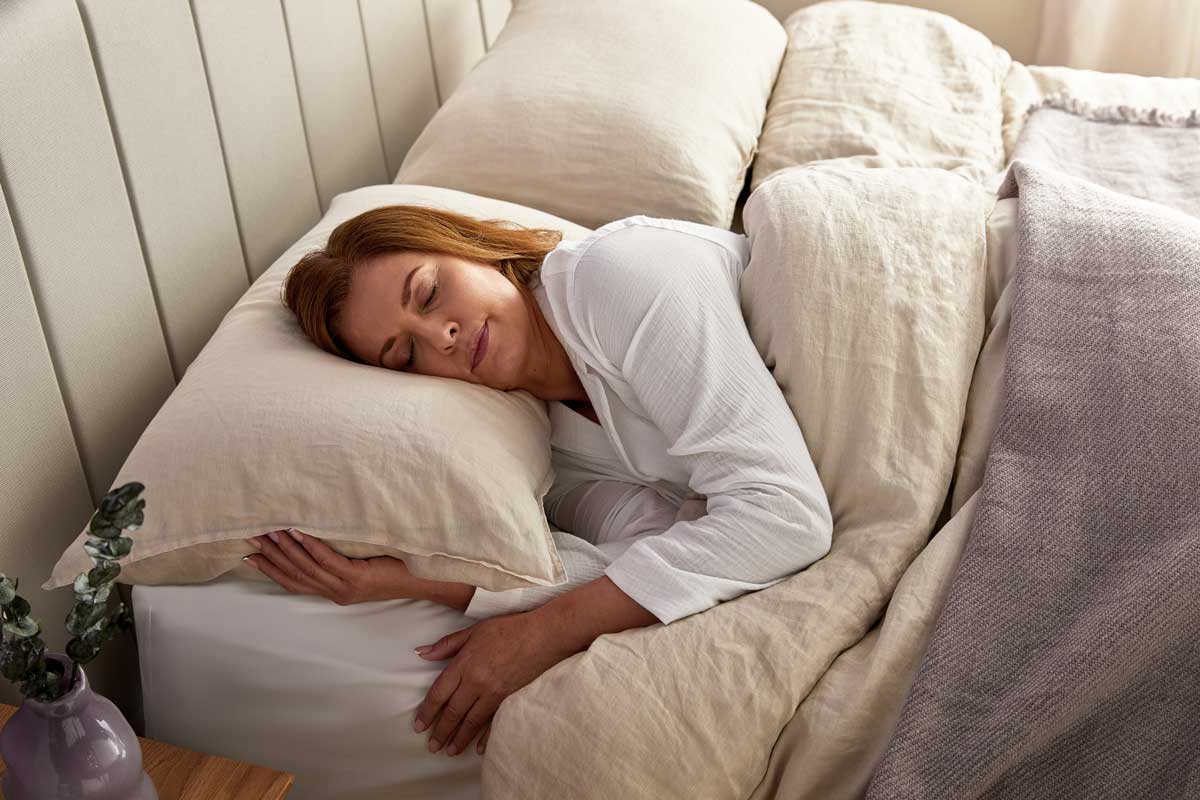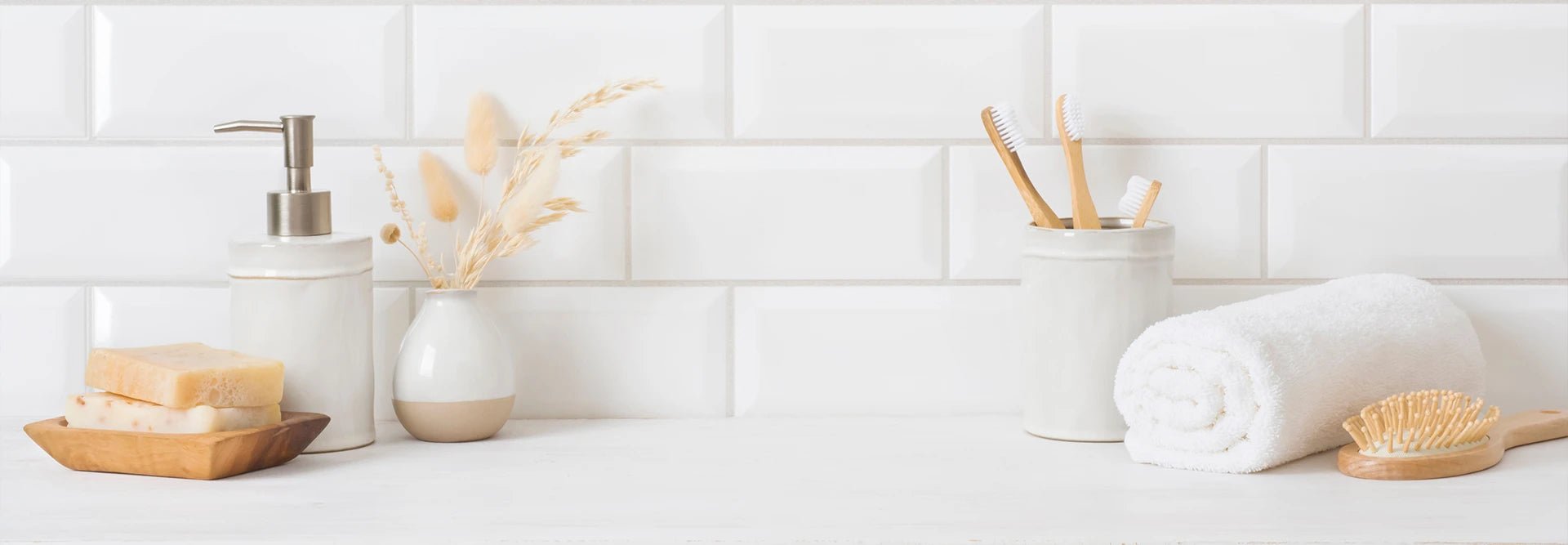
10 tips for your best ever night’s sleep
Sleep is vital for maintaining both your physical and mental health, and when you don’t get enough shut-eye, it doesn’t take long to feel the effects - a lack of energy, daytime drowsiness and minimal concentration, not to mention feeling moody and irritable too.
Many of us spend the night tossing and turning, and getting a good night’s sleep can seem pretty much impossible when you’re lying wide awake at 2am mulling over your worries. The good news is, you have a lot more control over your sleep quality than you may think. So, try one or two of these top tips at a time to build the best routine for a great night’s sleep.
Why is sleep so important?
Sleep is essential - it allows your body and mind to recharge, leaving you feeling refreshed when you wake up and ready to take on whatever the day throws at you. Quality sleep maintains the health of your body, keeps your mental health in check and helps to keep diseases at bay. Not getting the sleep you need each night has a negative effect on your brain function, making it harder to concentrate, think clearly and process memories, and if continued over a prolonged time puts you at a higher risk of certain diseases such as high blood pressure and diabetes.
Aiming to get around 7-9 hours of sleep each night is what you need to function at your best, feel alert and maintain good health. But a whole range of factors can have a negative impact on your sleep, such as stress, medical conditions, poor lifestyle habits and a disruptive bedroom environment.
Managing stress levels, making positive lifestyle changes and keeping to a consistent sleep-wake time will go a long way to helping you get the quality sleep you need.
Top 10 tips for your best night's sleep
-
Go to bed and wake up at a consistent time Going to bed and waking up at a similar time each day, and aiming for 7-9 hours worth of shut-eye, reinforces your body’s sleep-wake cycle and promotes better sleep quality. Being consistent with your sleep-wake schedule helps your body produce the right hormones at the right time of day. If you go to sleep at 10pm every night your body will start producing sleep hormones just before this so you can drift off easier, making it easier to get the rest you need and wake up naturally without the aid of an alarm clock. Try to wake up with the same 15 minute window, resisting the urge to drift off back to sleep, as you’ll only find it harder to get out of bed.
-
Create the best sleep environment Making small improvements to your bedroom can make all the difference to your quality of sleep. Keeping your bedroom cool, dark and quiet ensures a good night’s rest. If outside noise is preventing you from getting the sleep you need, then try earplugs or masking it with a sound machine or fan. A bedroom that’s too cold or warm can interfere with the quality of your sleep, so aim to keep the temperature at a cool and comfortable temperature - this can be different from person to person. And keep the space dark too, so eliminate electronics from the room and use black-out curtains to prevent any light from street lamps seeping in.
-
Take time to unwind Stresses and worries from the day can make it difficult to fall asleep and stay asleep throughout the night. Creating a relaxing routine before bed makes it easier to unwind and helps to prepare your mind for sleep. Your bedtime routine could include things like meditation, breathing exercises, reading or listening to some relaxing music - anything that helps clear your mind and promotes a sense of calm so you're ready for a peaceful night’s sleep.
-
Enjoy a relaxing bath or shower Enjoying a warm bath or shower, about 90 minutes before bed, is another way to help you relax and sleep better. Just avoid taking a bath too close to bedtime as your body will not have enough time to cool down, which is what’s required to help you drift off into a restful slumber.
-
Pay attention to what you eat and drink Going to bed on a full stomach and drinking alcohol or caffeine before you climb under the covers, negatively impacts sleep quality and leaves you feeling groggy the next day. Alcohol disrupts your sleep cycle and sleep is less restorative too, while caffeine has a stimulant effect, making it more difficult to fall asleep. When it comes to your evening meal, don’t eat anything too large or heavy in the evening.
-
Exercise regularly As well as boosting your mental and physical health, exercise is also a great way to help you get the sleep you need. Moderate exercise on a regular basis, as long as it’s not done too close to bed, can help you to fall asleep faster, prolongs the time spent sleeping and improves the quality of your sleep.
-
Curb late daytime naps Taking a nap too late in the day impacts your sleep quality at night, so if you feel sleepy and it’s past 3pm, try resisting the urge to take a snooze. Having a power nap earlier in the day does have its benefits though, including reduced fatigue, relieves stress, improves memory function and helps to prevent accidents.
-
Listen to soothing sleep sounds Whether the sound of the ocean waves, rainfall or white noise, listening to soothing sounds is a simple yet effective way to help you drift off, setting the scene for a blissful night’s sleep. Sounds that are specially created to help you sleep, promote lower blood pressure, a slower heart rate and reduced anxiety, and so when you’re in a relaxed state of mind, you’ll find it a lot easier to get the sleep you need.
-
Manage your worries During the day try to resolve any worries or concerns you may have so they’re not on your mind at bedtime. Keep a pen and pad by your bed in case anything pops into your mind at 2am - write it down and set it aside for the next day. Managing stress by getting organised, setting priorities and sharing tasks for example, can help you to keep calm and worry less, helping you to sleep better at night.
-
Avoid clock watching It may be easier said than done when you’re finding it hard to fall asleep, but try to resist the urge to keep looking at the clock. Constant clock watching makes you more anxious about the fact you’re still awake in the middle of the night. So, turn your clock the other way, and if your phone is next to your bed, keep it face down, to make it less tempting to check the time.
Bonus: Don’t over-commit
Making changes to a routine takes time and commitment for the changes to set in, and trying to change too much can be discouraging, stressful and counterproductive. So, to make positive steps that last and work for you, start with one or two small changes at a time, giving ample time - a week or two for your new routine to take hold with each change.




